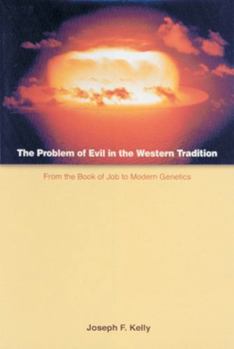The Problem of Evil in the Western Tradition: From the Book of Job to Modern Genetics
Select Format
Select Condition 
Book Overview
Evil presents a profound and eternal challenge to humanity - why do we do what we know to be wrong? Why does not an all-good and omnipotent God step in and put an end to evil? The Problem of Evil looks at people's efforts to deal with evil, starting with ancient Israel and moving through the great figures of the Western tradition to the twenty-first century.
Format:Paperback
Language:English
ISBN:0814651046
ISBN13:9780814651049
Release Date:January 2002
Publisher:Liturgical Press
Length:256 Pages
Weight:0.95 lbs.
Dimensions:0.6" x 6.0" x 9.0"
Customer Reviews
1 rating
Helpful survey of the history of a difficult topic
Published by Thriftbooks.com User , 18 years ago
Well researched yet very readable -- looks at developments in theology, philosophy and literature in each period of intellectual history, analyzing the ways different authors did or did not attempt to reconcile the existence (or apparent existence) of evil in the world with the classical theist concept of the omnipotent, omnibenevolent God. While the book draws on a variety of sources, each chapter goes into greater depth on two or three works or thinkers who either exemplify or stand in contrast to a particular tradition: excursi on the Marquis de Sade, Mary Shelley's "Frankenstein," and Dostoyevski's "The Brothers Karamazov" are particularly compelling. A potential weakness of this strategy is the illusion of a single thread of development, or of successive schools of thought that each characterize a particular time period. Kelly addresses this by the use of contrasting voices within each time period, and by highlighting the recurrence of particular themes or emphases across time. I read this book in a seminary-level course, but think it could be enjoyed by anyone with a little background in western intellectual history. It avoids jargon, and explains technical terms when they are necessary.






